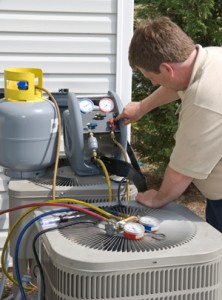How to Prevent an AC Breakdown
Many air conditioners are designed to have a bit of moisture build-up on the machine, but if you notice more than just slight moisture, you may be experiencing some larger scale issues. Air conditioning units can be needy (kind of like your car) in the sense that if you don’t get regular tune ups and inspections, bigger problems (and bills) can arise. Here are some tips from our experts at Point Bay Fuel to prevent any unwanted breakdowns (or any unnecessary spending) on a hot New Jersey summer day. 
1. Regular Checkups
Contents
Many small parts make up an air conditioner; if one of these small parts fail, you could experience failure of the HVAC unit as a whole. Routine checkups on your unit are the best way to ensure the best performance of your unit. Thorough and extensive tune ups are critical in order to ensure your AC’s best performance.
2. Know Where Your Unit Is Located
Second, know when your unit is located. As surprising as it may sound, many people are unaware where their central air conditioner is actually located (and most of the time they only find out when they are experiencing a problem). So, whether you have a ductless air conditioner or an external air conditioner, make sure you know where it is, know how to change the air filter and ensure that you have access to it (remove overgrown shrubbery) in case of emergency.
3. Have Your Condensate Line Checked
Third, have your condensate line (also called the AC drain line) checked regularly. If failure to do so, can result in water back up and high amounts of spending to clean up a big mess that could have easily avoided. Cleaning the line plays an important role in removing condensation produced by your air conditioner’s evaporator coil. If the line isn’t properly cleaned, algae and mold can grow inside and clog the drain, causing elevated humidity, musty odors and water damage inside your home.
4. Open the Air Vents
Some people think that closing or blocking air vents could save energy. This misconception can lead to different HVAC performance issues. Since your AC is built to handle a specific pressure load for the size of your home, all of the supply and return vents need to be free of obstructions to maintain that load.
5. Help it Out
Don’t make your AC work harder than it has to. Use energy saving thermostat settings, close the blinds, use ceiling fans and try not to use the oven on hot days to find the perfect temperature.
You Can Count on Point Bay
If you hear any strange noises or if your air conditioning unit stops working at its full capacity, call us immediately. Let the professionals handle the heat to get you and your family back at a comfortably cool temperature. Contact us at 732-349-5059 today!
